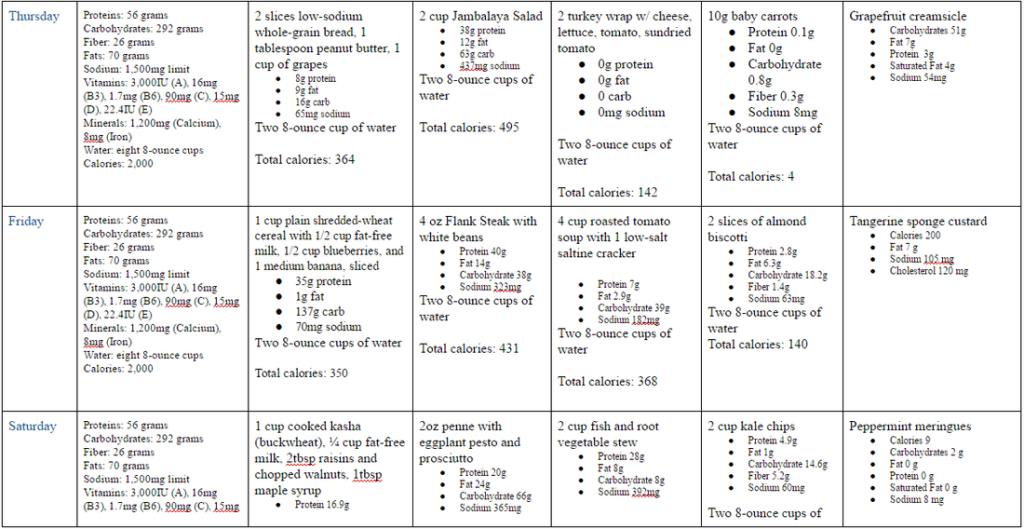

Balanced meal planning is the cornerstone of sustained energy levels. Imagine waking up feeling energized, ready to tackle the day without that afternoon slump. This isn’t a fleeting fix; it’s a sustainable approach to fueling your body for optimal performance. Many individuals struggle with inconsistent energy throughout the day, feeling sluggish and unproductive. This often stems from an unbalanced diet lacking essential nutrients. This article delves into balanced meal planning strategies, providing a roadmap to create consistent energy levels. We’ll cover the importance of macronutrients, portion control, mindful eating, and creating a sustainable meal plan. We’ll also discuss meal prepping strategies and offer actionable steps you can take to implement these strategies immediately.
Understanding Macronutrients for Energy
The Building Blocks of Balanced Meals
Understanding the three macronutrients—proteins, carbohydrates, and fats—is crucial for balanced meal planning. Proteins are essential for building and repairing tissues, while carbohydrates offer the body with readily available energy. Fats, often misunderstood, are vital for hormone production, nutrient absorption, and insulation. A balanced approach involves incorporating all three macronutrients in appropriate proportions. A diet deficient in any one can lead to energy fluctuations, mood swings, and reduced performance.
For example, a breakfast consisting of a protein-rich smoothie with fruits and nuts offers a sustained release of energy throughout the morning. Alternatively, a high-carbohydrate meal like pasta could lead to a rapid energy spike, followed by a crash.
Studies have shown that a balanced intake of macronutrients leads to improved mood and overall well-being. This is due to the stable release of energy and the provision of essential nutrients for optimal bodily functions.
The Power of Portion Control
Finding the Right Balance
Portion control is a critical facet of balanced meal planning. Understanding appropriate portion sizes for each macronutrient is key to achieving a balanced nutritional intake. Using measuring cups and spoons, or even utilizing visual cues, can aid in maintaining healthy portions. Consider your activity level. If you lead a very active lifestyle, you may need to consume more calories than someone who is less active. A balanced approach involves adjusting portions based on individual needs.
Studies have shown that even small adjustments in portion sizes can significantly impact weight management. One effective approach is mindful eating. Practicing mindful eating involves paying attention to hunger and fullness cues. By taking time to savor each bite, you can better regulate portion sizes and avoid overeating. The key is to find a balance between satisfying your hunger and avoiding overindulgence. Example: A common mistake is to fill your plate with more food than your body needs.
Mindful Eating Habits
Cultivating a Healthy Relationship with Food
Mindful eating is about paying attention to the sensory experience of eating. It involves being present in the moment, savoring the flavors, textures, and aromas of your food. By practicing mindful eating, you can develop a deeper understanding of your body’s hunger and fullness cues. This can significantly impact portion control and overall food choices. This mindful awareness can make a significant difference in both your physical and mental well-being.
For example, when you eat mindfully, you’re less likely to overeat, since you’re better attuned to your body’s signals. Mindful eating can also help you select foods that better nourish your body. It allows you to connect with your hunger cues and not mindlessly eat when you’re not truly hungry. Eating in a non-distracted setting is key; avoid eating while watching TV or working. Consider using a timer to promote mindful eating habits.
Experts recommend setting a specific time frame (e.g., 20 minutes) for each meal, focusing on eating without distractions, and appreciating the taste and texture of food.
Creating a Sustainable Meal Plan
Design Your Personalized Plan
Developing a sustainable meal plan is essential for maintaining balanced meal planning. A personalized plan takes into account individual dietary needs, preferences, and lifestyle. Consider using a food diary to track your current eating habits. Note what you eat, when you eat, and how you feel afterward. This information will be invaluable for building a personalized meal plan.
Examples of a sustainable meal plan include: breakfast smoothies, lean protein and whole grains at lunch, and balanced dinners incorporating fruits, vegetables, and lean protein. Utilize meal-prepping techniques to prepare meals in advance, reducing stress and ensuring consistent healthy choices throughout the week. A sustainable plan is one that fits seamlessly into your lifestyle and allows for flexibility. Creating a meal plan template is extremely valuable in this facet.
Meal Prepping Strategies
Efficiency and Ease
Effective meal prepping strategies can greatly facilitate consistent balanced meal planning. Meal prepping involves preparing components of meals in advance, streamlining the process of preparing healthy meals throughout the week. This involves portioning ingredients and assembling meals on the weekend. Prepping ingredients like chopping vegetables or cooking grains can complimentary up your time during the week and help you stick to your meal plan.
Consider meal-prepping recipes that can be stored in the refrigerator or complimentaryzer. Think of protein bowls, salads, and other easily reheat-able meals. Having ready-made components ensures you’ll always have a balanced meal option available, encouraging healthy choices rather than resorting to quick but less healthy alternatives.
In conclusion, balanced meal planning for sustained energy levels isn’t just about the food you eat, but about the habit you cultivate. By understanding the importance of macronutrients, mindful eating, and proper portion sizes, you empower yourself with the fuel your body needs to thrive. Don’t just read this; apply these principles today for lasting energy and well-being. Take the first step toward a healthier, more energetic you! Visit our website for a personalized meal plan and recipe ideas!